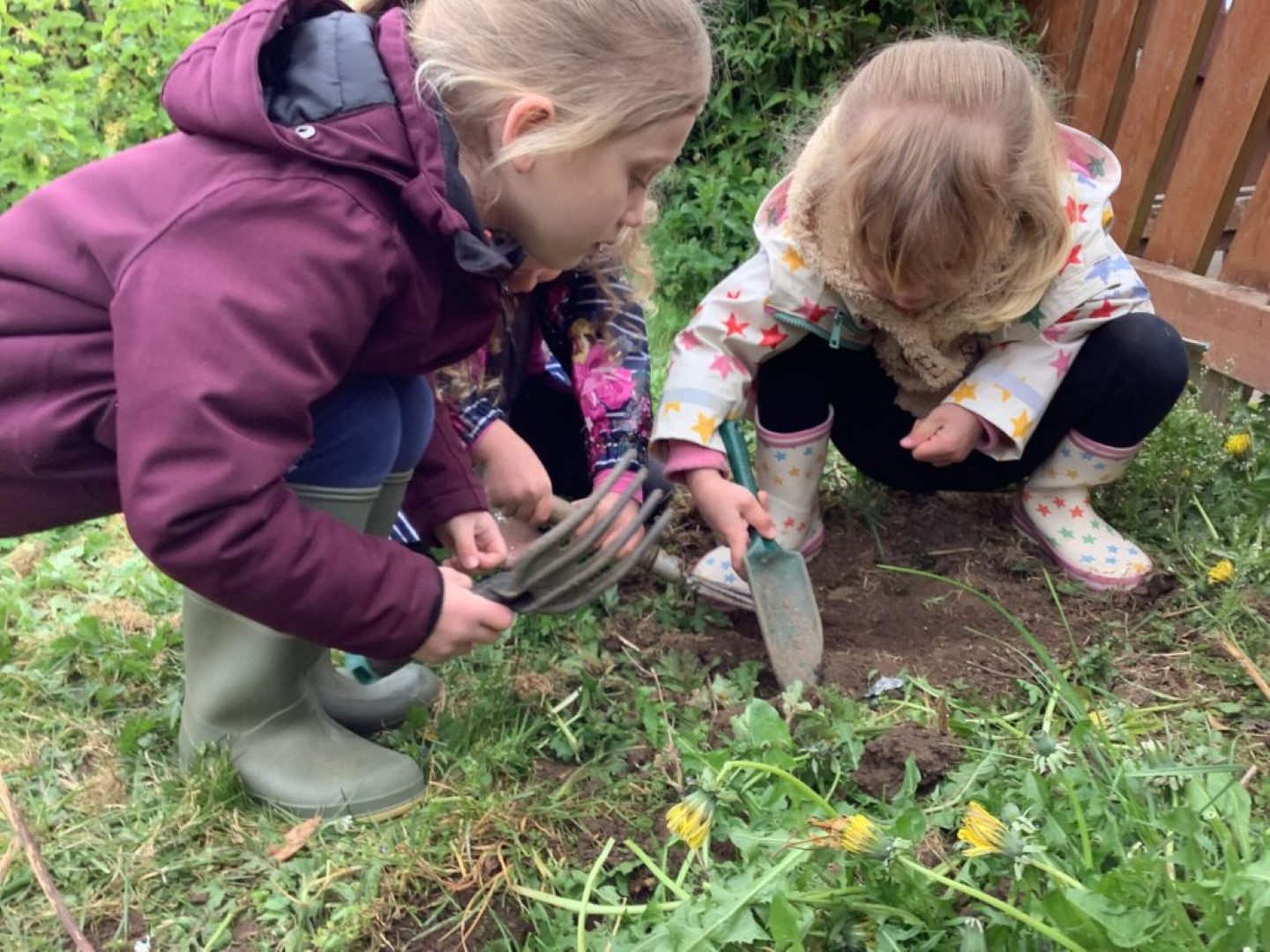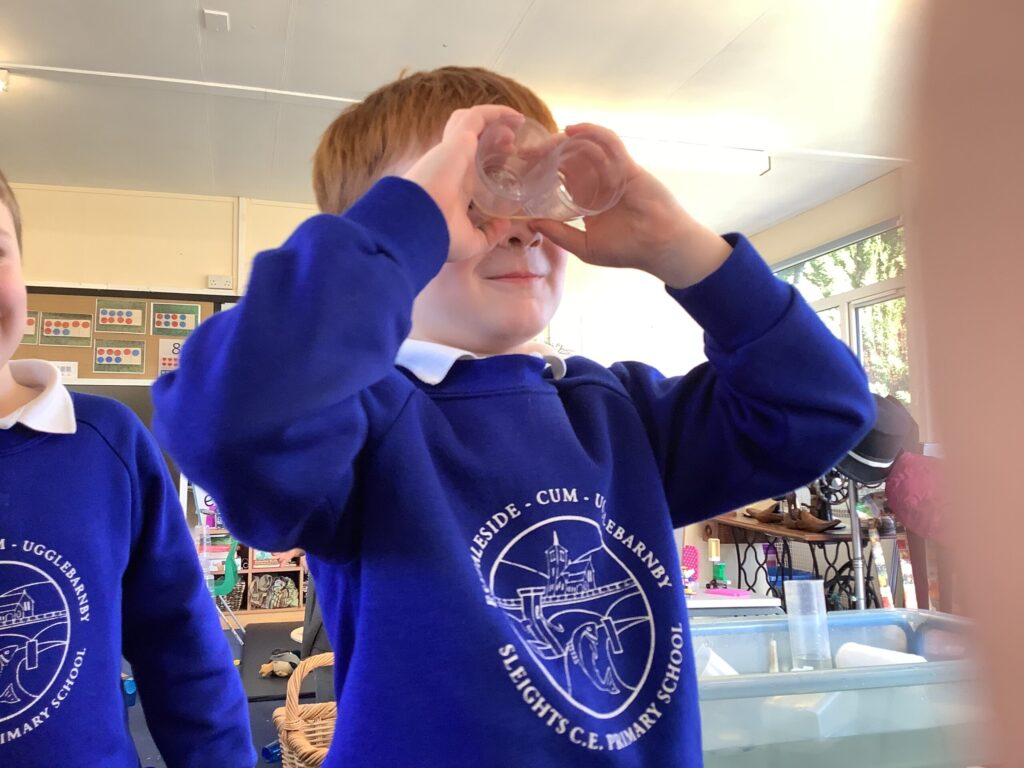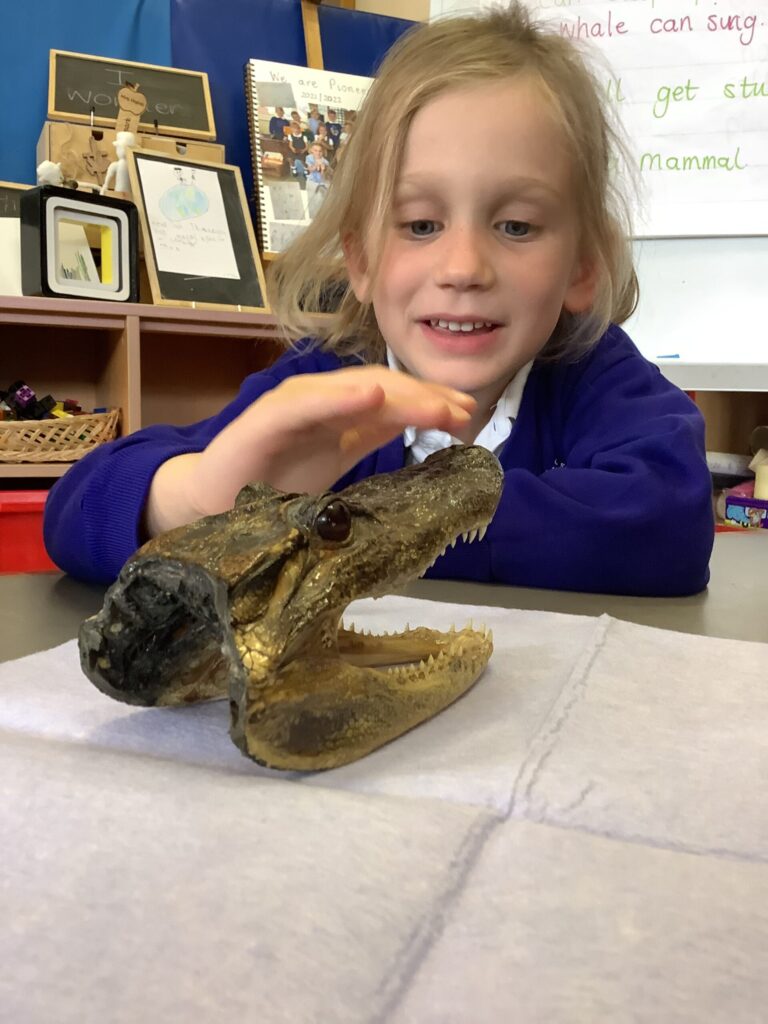|
The opportunity for practical, hands on investigation, so that children can explore concepts and ideas. |
|
Sequenced learning experiences, which build on prior knowledge and understanding. |
|
Developing a secure knowledge and understanding of models, laws and theories (substantive knowledge) |
|
Acquisition of skills and knowledge about how practices of scientists (disciplinary knowledge) |
Statement of Science Intent:
The curriculum at Sleights will support children to:
- identify crucial learning, which is placed in context and connected to other knowledge.
- build on and develop scientific knowledge and skills in a well sequenced and structured progression across their time at Sleights.
- support children’s acquisition and progressive understanding of substantive and disciplinary knowledge. instil a love of science.
- inspire children to ask questions and explore ideas. equip children with the skills needed to investigate an idea, before drawing conclusions.
- teach children to take the lead in planning investigations. facilitate rich, exploratory investigations of all science topics.
- support children to make links with the taught science curriculum and the wider world. utilise core skills from across the curriculum, for example, mathematics skills when recording or analysing results from an investigation.
Statement of Science Implementation:
Science is implemented at Sleights through:
- timetabled, high-quality lessons, which enable children with the time and opportunities to develop their scientific knowledge, understanding and skills over time.
- the use of a progressive long term plan, which builds on new knowledge and skills, that children can gain an increasing understanding of scientific concepts.
- identified opportunities for practical investigation.
- explicit and ongoing opportunities for low stakes assessment, to identify that children know more and remember more.
Learning in science is recorded in a variety of ways. Children enjoy a range of practical activities to support their understanding of science topics, concepts and enquiry. Children’s work for science is recorded in their individual learning journeys, which illustrates their time across Sleights.
Our approach:
The science curriculum at Sleights is designed so that:
- children
 will engage in well sequenced planning, which enables the acquisition and build up of skills.
will engage in well sequenced planning, which enables the acquisition and build up of skills. - meaningful links are made with science topics and other areas of the curriculum. However, where links are tenuous, science will be viewed discreetly.
- children engage in well planned science lessons that have clear intent and skills to be taught.
- science is practical and enables children to use real life opportunities to draw conclusions and discover science in action.
- children engage in thorough practical investigations, with a clear process for investigation, regularly throughout the study of any topic.
- science outcomes are recorded through photographs, discussions, written evidence etc. across individual pieces of work and class ‘Big Books’.
What will children learn?
Science at Sleights focuses on the acquisition of new knowledge and building on prior learning relating to:
- knowledge about science concepts, laws, theories and models (described as substantive and conceptual).
- knowledge about how scientific knowledge is generated and grown, including links to ‘working scientifically’ (described as disciplinary knowledge).
In addition to mapping out the topics to be taught at Sleights, our school’s long term and medium term plans identify the substantive and conceptual knowledge (sometimes referred to as ‘sticky learning’) taught across school from Key Stage One to the end of Key Stage Two. This knowledge and content is organised and sequenced, so that children gain new knowledge and build on prior learning over time.
Our Long Term Plan

 Children start each unit with an assessment of how much vocabulary children know already. Children colour code the focus vocabulary. This is used to support teaching and learning for the remainder of the unit. Children then revisit the vocabulary during the unit to demonstrate the impact of teaching and learning.
Children start each unit with an assessment of how much vocabulary children know already. Children colour code the focus vocabulary. This is used to support teaching and learning for the remainder of the unit. Children then revisit the vocabulary during the unit to demonstrate the impact of teaching and learning.